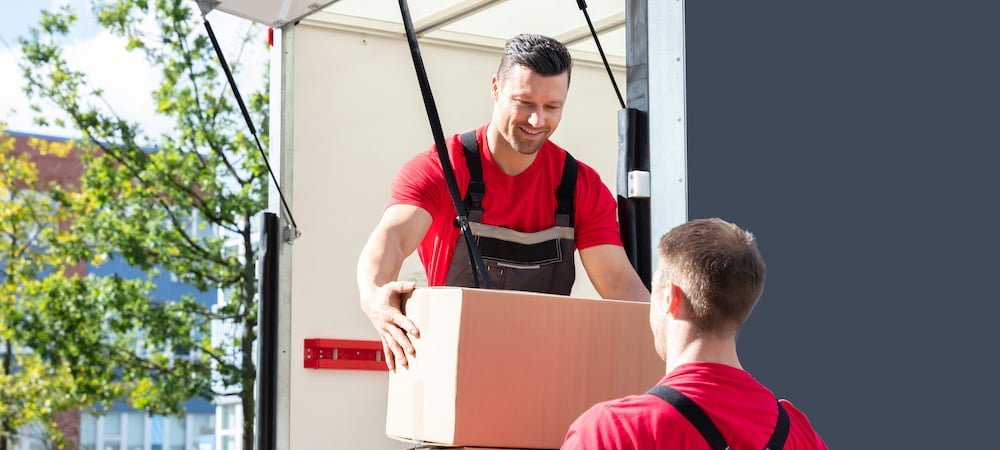Understanding the Inclusions of moving and Freight Forwarding worldwide of Residential and Worldwide Delivery
Steering with the complexities of moving and Freight forwarding can be difficult. Both procedures include distinctive procedures and demands that are crucial for effective transportation. Recognizing the differences in logistics, documentation, and danger monitoring is crucial for people and organizations alike. This knowledge can substantially affect the effectiveness and security of deliveries. Nevertheless, many are unaware of the certain elements that affect the overall experience and results. What aspects should one consider to assure a smooth changeover?
The Fundamentals of moving and Freight Forwarding
moving and Freight forwarding are fundamental components of the international logistics industry. They promote the transfer of goods and individual belongings across global and domestic borders. moving primarily involves the relocation of households or people, encompassing commercial and residential requirements. It usually includes packing, filling, carrying, and unboxing products at the location. In comparison, Freight forwarding is concentrated on the shipment of items, often in mass, making use of different transportation settings, such as sea, land.freight, or air forwarders work as middlemans, coordinating logistics to ensure prompt distribution while steering through complex policies and custom-mades treatments. Both procedures require mindful preparation, company, and interaction to ensure efficiency and reduce disruptions. Recognizing these basics is important for anyone entailed in logistics, as they prepared for advanced facets of shipping and transport administration.
Secret Elements of Freight Forwarding Solutions
Freight forwarding solutions encompass a number of essential components that ensure smooth transport of goods. Secret responsibilities of Freight forwarders include managing logistics, coordinating shipments, and handling custom-mades clearance. Additionally, recognizing necessary shipping paperwork is imperative for compliance and reliable movement of cargo.
Freight Forwarder Responsibilities
A dependable Freight forwarder plays an essential duty in collaborating the transportation of items, ensuring that shipments are dealt with efficiently and in conformity with policies. Their responsibilities include numerous vital tasks, including selecting excellent transport courses, negotiating Freight rates, and handling logistics. They function as middlemans in between shippers and service providers, making certain that freight is correctly packaged and identified for risk-free transportation. Additionally, Freight forwarders track deliveries, providing updates to clients concerning the standing and expected shipment times. They likewise evaluate and handle risks related to transport, advising insurance policy alternatives as required. By promoting interaction and paperwork, Freight forwarders enhance the delivery procedure, minimizing possible delays and enhancing overall supply chain effectiveness.
Shipping Documentation Essentials

Recognizing Custom-mades Clearance and Documentation
Exact documents is vital in the customs clearance process, as it ensures conformity with different regulations. An introduction of personalizeds guidelines highlights the complexities encountered by shippers and Freight forwarders. Typical clearance difficulties can considerably influence shipment timelines and prices, making understanding this element essential for efficient logistics.
Significance of Accurate Paperwork
Guiding with the complexities of international shipping needs a keen understanding of customizeds clearance and the vital duty of documents. Exact documents is necessary for ensuring that deliveries abide by laws and reach their locations without hold-ups. Effectively prepared records, consisting of bills of lading, commercial invoices, and packing listings, assist in smooth communications with customs authorities. Inaccuracies can result in delivery hold-ups, fines, and even confiscation of items. Furthermore, complete documents aids in tracking shipments and dealing with disputes. Consequently, organizations participated in moving and Freight forwarding must focus on careful paperwork techniques to navigate the detailed landscape of worldwide delivery efficiently. This persistance not just simplifies operations however also enhances consumer satisfaction by making sure prompt delivery.
Customs Rules Introduction
Steering customizeds laws is an essential element of global trade that directly impacts the success of moving and Freight forwarding procedures. Effective custom-mades clearance calls for an understanding of various regulations, including tolls, obligations, and import/export restrictions. Exact paperwork is important, as it guarantees compliance with legal requirements and helps with the effective movement of items throughout boundaries. Secret papers frequently consist of business billings, packing lists, and bills of lading, which offer in-depth info about the shipment. Furthermore, custom-mades pop over to this site brokers play an essential duty in guiding complicated laws, functioning as middlemans in between custom-mades and shippers authorities. By preserving complete knowledge of personalizeds procedures, services can considerably minimize hold-ups and lessen expenses connected with worldwide delivery.
Common Clearance Obstacles
Many difficulties can occur throughout the custom-mades clearance process, frequently making complex the activity of products throughout borders. One significant problem wants documentation, which can bring about penalties and hold-ups. Merchants and importers must ensure all required documentation, such as billings, packing checklists, and certificates of beginning, is full and exact. Additionally, inconsistencies in appraisal can trigger examination from custom-mades authorities, causing added obligations or inspections. Language barriers may likewise position obstacles, as miscommunication can result in misconceptions pertaining to guidelines. Adjustments in custom-mades regulations can create confusion, demanding constant watchfulness by carriers. Inevitably, conquering these clearance tests requires complete preparation and a clear understanding of custom-mades requirements to help with smooth global transactions.
Packaging and Labeling Demands
Usually forgotten, packaging and labeling requirements play a necessary function in the delivery procedure, guaranteeing that products are secured and easily recognizable throughout their journey (shipping overseas). Appropriate packaging safeguards items from damages throughout transportation, while also facilitating efficient handling and storage space. Utilizing proper products, such as bubble wrap, foam, or strong boxes, can prevent breakage and loss.Labeling is just as crucial. Exact and clear tags convey important details, consisting of the destination, dealing with instructions, and materials. Labels have to comply with guidelines specific to domestic and worldwide delivery, which might include dangerous materials recognition or customizeds declarations.Moreover, standardized labeling techniques simplify the monitoring process and enhance general logistics efficiency. By sticking to packaging and labeling needs, organizations minimize the risk of delays, damage, or misdelivery. Eventually, these techniques add significantly to the success of moving and Freight forwarding operations, ensuring a seamless delivery experience for all parties entailed
Tracking Shipments: Value and Methods
Efficient product packaging and labeling set the foundation for effective shipment administration, yet tracking shipments is equally essential in the shipping process. Delivery tracking supplies real-time visibility, which assists consumers and organizations check the progression of their goods. This transparency improves consumer complete satisfaction, considering that clients can stay educated regarding shipment timelines and any kind of potential delays.Several approaches help with reliable tracking. Barcode scanning is a common method, using one-of-a-kind identifiers to check packages throughout their journey. In addition, GPS modern technology allows specific location tracking, enabling prompt updates and improved logistics administration. Lots of delivery companies currently use digital platforms and mobile applications that give individuals with easy accessibility to tracking information.The significance of delivery monitoring can not be overemphasized; it lessens the threat of shed or harmed products, improves functional effectiveness, and cultivates depend on between receivers and shippers. Incorporating efficient tracking methods is essential for effective residential and international shipping operations.
Insurance policy Options for Your Item
Protecting insurance coverage for goods in transportation is a vital consideration for individuals and organizations alike. Insurance coverage options differ based on the kind of delivery, value of products, and details risks involved. Typical kinds consist of provider liability, which covers loss or damages while in transportation, and full-value insurance coverage, offering extensive insurance coverage for the overall worth of the goods.Shippers may additionally consider marine insurance coverage for worldwide deliveries, shielding versus threats related to sea transportation. It is vital to assess the certain needs of the shipment and assess the terms and conditions of any policy.Furthermore, understanding exemptions and restrictions is vital to prevent prospective voids in protection. Shippers should engage with insurance policy experts to check out customized options that fit their special situations. Eventually, purchasing the best insurance policy can mitigate financial risks and offer comfort during the delivery procedure.
Choosing the Right moving and Freight Forwarding Service
When choosing a moving and Freight forwarding service, it is crucial for organizations and people to thoroughly assess their certain requirements and top priorities. Elements such as the volume of items, destination, and timeline play a substantial role in this decision-making procedure. Researching numerous suppliers is advisable; comparing their services, prices, and customer testimonials can expose important insights.Additionally, it is essential to take into consideration from this source the experience and proficiency look at this web-site of the company in managing certain sorts of cargo, specifically for worldwide deliveries that may entail customs clearance. Openness in prices, including any surprise costs, must likewise be scrutinized.Furthermore, evaluating the degree of consumer support used is essential, as prompt communication can alleviate issues throughout transportation (international shipping). Lastly, verifying the availability of insurance coverage alternatives ensures that goods are shielded throughout the delivery procedure. By taking these services, people and steps can make educated choices that straighten with their logistics requirements
Often Asked Questions
What Kinds of Item Can Be Shipped Worldwide?

Exactly How Do Shipping Costs Differ Between Various Carriers?
Shipping prices differ considerably in between service providers because of elements such as solution rate, cargo kind, distance, and added solutions provided. Each copyright's rates model mirrors these variables, influencing general shipping expenditures for customers.
Can I Ship Hazardous Materials or Perishables?
Delivering hazardous materials and perishables is subject to strict policies. Carriers frequently call for particular product packaging, labeling, and documents. Carriers must assure compliance with worldwide and regional regulations to avoid fines and guarantee secure transport.
What Should I Do if My Delivery Is Postponed?
When faced with a delivery delay, one must first speak to the service provider for updates. Review any notifications obtained, evaluate alternate remedies, and maintain all celebrations educated about the circumstance to lessen disturbances.
Exist Weight Purview for Shipping Containers?
Weight limitations for delivery containers differ depending on elements like container size and shipping guidelines. Generally, conventional containers have a maximum gross weight of around 30,000 to 32,000 kgs to guarantee safe transport and handling. In comparison, Freight forwarding is concentrated on the delivery of items, commonly in mass, using various transportation modes, such as land.freight, air, or sea forwarders act as intermediaries, working with logistics to assure prompt shipment while steering via facility laws and customizeds procedures. Key obligations of Freight forwarders include managing logistics, coordinating deliveries, and taking care of customs clearance. A trustworthy Freight forwarder plays a necessary function in collaborating the transportation of items, making certain that deliveries are managed effectively and in conformity with policies. Effective packaging and labeling established the foundation for successful delivery management, yet tracking deliveries is just as important in the delivery process. Many delivery business now use digital platforms and mobile applications that provide customers with simple accessibility to tracking information.The value of shipment monitoring can not be overstated; it reduces the risk of shed or damaged goods, enhances functional efficiency, and fosters trust fund between receivers and shippers.